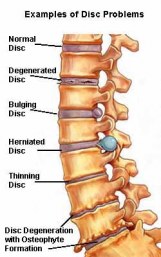
Disc surgery is often successful at reducing pain resulting from having herniated discs. However, studies comparing the effectiveness of surgical v. non-surgical treatment of disc conditions demonstrate mixed results, and surgery should not always be the first option, even though it might be encouraged by a particular doctors, as sometimes the motivations of doctors to perform a surgery are less than noble and are in large part driven by billing your insurance company. This means, that seeking at least one second opinion from another competent and reputable doctor as to the need for surgery is a very good idea.
If you plan on having a surgery in a foreseeable future, it's very important that either you or your attorney obtain a letter from a potential surgeon about the cost and the nature of the surgery and the treatment will need during recovery in order to maximize the settlement of your injury claim or a court award, if you case goes to trial.
 RSS Feed
RSS Feed
